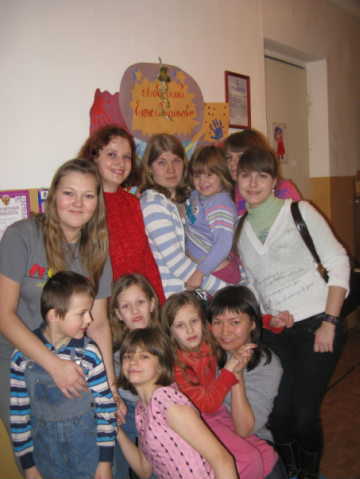The Council of Europe for the first time developed an international legal instrument to fight sexism
Press Release, 3.04.2019
The Gender Faction of the Yabloko party welcomes the recommendation on combatting sexism, which has been just adopted by the Committee of Ministers of the Council of Europe. The recommendation notes that states should intensify their fight against sexism in all spheres of life.
In response to the recent #MeToo campaign, other recent events, and actions that have focused attention on the unrelenting sexism in society, the CE Committee of Ministers adopted the Recommendation on Preventing and Combating Sexism, which for the first time includes the definition of sexism.
The Recommendation stresses that sexism represents a manifestation of “historically unequal power relations” between women and men, leading to discrimination and preventing the full advancement of women in society. This phenomenon is “widespread and prevalent in all sectors and all societies, and (…) sexism and sexist behaviour are rooted in and reinforce gender stereotypes,” the document notes.
For the first time, sexism is defined in a legal instrument aimed to tackle it via a comprehensive list of measures and areas where sexism occurs, from advertising and media, to employment, the justice sector, education and sport. The text of the document sheds light on what sexist behaviour is and proposes concrete ways for different actors to identify and address them.
The document requests that CE member states monitor progress in implementing the guidelines and to inform the Council of Europe’s Gender Equality Commission of measures taken and progress achieved.
The recommendation addresses issues with which women, and also sometimes men, have to confront every day. Notably, it makes a link between sexism and violence against women and girls, explaining that acts of “everyday” sexism represent a “part of a continuum of violence that create a climate of intimidation, fear, discrimination, exclusion and insecurity which limits opportunities and freedom.”
Recommended action include legislative reforms that both condemn sexism and define and criminalise sexist hate speech, and provide for appropriate remedies for victims of sexist behaviour.
The recommendation calls on states to use awareness-raising measures including “speedy reactions” by public figures, in particular politicians, religious, economic and community leaders, and others in a position to shape public opinion, to condemn sexism.
The recommendation also stresses that language and communication “must not consecrate the hegemony of the masculine model”. It calls for the use of non-stereotypical communication to educate, raise awareness and prevent sexist behaviour. In particular, it recommends ending the use of sexist expressions, and using gender-sensitive language.
The recommendation also focuses on recent technologies. While the Internet and social media can promote free expression and gender equality, they also can allow “perpetrators” to express “abusive thoughts” and engage in abusive behaviour, the recommendation runs.
The document mentions artificial intelligence and how it may help to “transmit and strengthen” existing gender stereotypes, thus, contributing to the perpetuation of sexism.
“Our stance fully coincides with the Recommendation of the Council of Europe, and this is not accidental for the party, which is a member of the Alliance of Liberals and Democrats for Europe (ALDE) and has the Gender Faction,” said Galina Michaleva, head of the faction.
See also: Council of Europe web-site
Posted: April 3rd, 2019 under Gender Faction, Human Rights.









